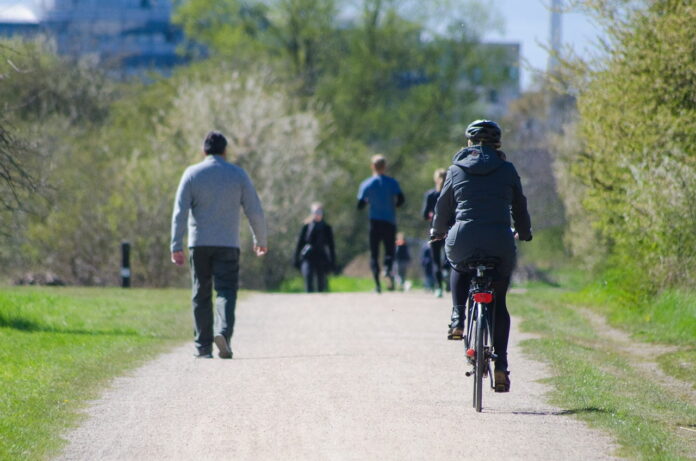The dawn of the 21st century has brought with it a heightened awareness of environmental issues, particularly the impact of transportation on climate change. As the world grapples with the urgent need to reduce carbon emissions, the quest for eco-friendly commuting options has intensified. Moving beyond the traditional combustion engine is no longer a futuristic concept but a present-day necessity. This article explores the various alternatives to gasoline-powered vehicles that are reshaping the way we think about our daily commute.
Pedal Power: The Resurgence of Bicycles in Urban Transport
Bicycles, one of the oldest forms of transportation, are making a significant comeback in urban landscapes. Cities around the world are investing in bike lanes and bike-sharing programs to encourage this eco-friendly mode of transport. The benefits are manifold: cycling is not only zero-emission but also promotes physical health and reduces traffic congestion.
The resurgence of bicycles can be attributed to a growing environmental consciousness and the desire for a more active lifestyle. In cities like Amsterdam and Copenhagen, over 50% of the population commutes by bike, thanks to comprehensive cycling infrastructure. Technological advancements such as electric bikes (e-bikes) are making it easier for people to cover longer distances without breaking a sweat, thus expanding the appeal of pedal power.
Public Transit Solutions: Reducing Carbon Footprints with Buses and Trains
Public transit systems offer a viable solution for reducing individual carbon footprints. By utilizing buses and trains, commuters can significantly cut down on emissions compared to driving personal combustion engine vehicles. Public transportation also alleviates traffic congestion and reduces the need for extensive parking spaces.
Statistics show that a single bus can replace up to 30 cars on the road, and a packed train can account for hundreds less. Cities that invest in efficient and reliable public transit systems see a marked decrease in air pollution and an improvement in the overall quality of life. For instance, Tokyo’s extensive and punctual train system serves as the backbone of the city’s transport, moving millions daily with minimal environmental impact.
The Electric Vehicle Revolution: How EVs are Changing the Commute Landscape
The electric vehicle (EV) revolution is perhaps the most direct challenge to the combustion engine’s dominance. With major automakers committing to electrify their fleets, the availability of EVs is rapidly increasing. These vehicles offer a cleaner alternative to their fossil-fuel-powered counterparts, especially when charged with renewable energy.
The proliferation of EVs is supported by the expanding infrastructure of charging stations, making it more convenient for daily commuting. Governments are also incentivizing EV adoption through tax breaks and subsidies. As battery technology improves, the range anxiety that once plagued potential buyers is becoming a thing of the past. In Norway, for example, EVs now account for over half of new car sales, thanks to a combination of incentives and infrastructure.
Carpooling and Ridesharing: Social Solutions for Sustainable Travel
Carpooling and ridesharing represent social approaches to sustainable travel. By sharing rides, commuters can reduce the number of vehicles on the road, leading to lower emissions and less traffic congestion. These practices also offer economic benefits by splitting travel costs among passengers.
Ridesharing apps have made it easier than ever to connect drivers with riders heading in the same direction. In the United States, companies like Uber and Lyft have introduced options to share rides with other users, further promoting this eco-friendly practice. Carpooling initiatives in workplaces and communities are also gaining traction, as people recognize the environmental and social advantages of shared journeys.
Innovative Alternatives: E-Scooters, E-Bikes, and Other Emerging Modes of Eco-Transport
The landscape of eco-transport is continually evolving with the introduction of innovative alternatives. E-scooters and e-bikes have emerged as popular modes of transport for short urban commutes. These electric-powered options provide a quick and convenient way to navigate city streets without the carbon emissions associated with traditional vehicles.
Cities are adapting to these new forms of transport by creating designated lanes and parking areas. The rise of micro-mobility services, where users can rent e-scooters and e-bikes through an app, has made these vehicles accessible to a broader audience. As urban planners seek to integrate these new technologies into the transport ecosystem, the potential for a cleaner, more efficient commuting experience becomes increasingly tangible.
The shift towards everyday eco-transport is a multifaceted movement that encompasses a range of alternatives to combustion cars. From the resurgence of bicycles to the adoption of electric vehicles, and from the embrace of public transit to the innovation in micro-mobility, each alternative offers a piece of the puzzle in creating a sustainable commuting landscape. As technology advances and societal attitudes evolve, the transition to eco-friendly commuting methods will continue to gain momentum, paving the way for a greener, cleaner future.
